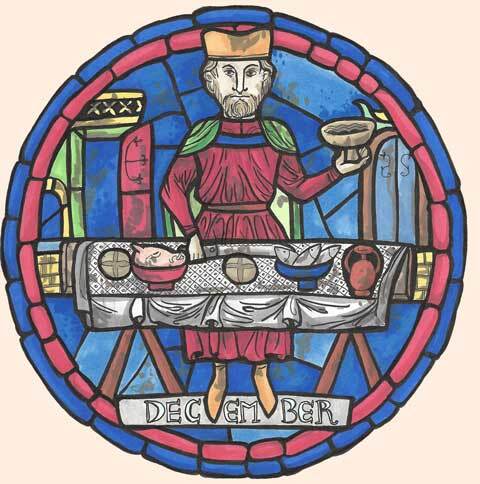
December
The Master
The counting exercise introduced in November measured the frequency of our efforts while disregarding duration. Each time we remembered our work we ‘clicked’ on our counter regardless of whether our effort was short-lived or lasting. We will consider this distinction as we enter December, because the difference between a momentary realization of being asleep and remaining awake is like the difference between a spark and a flame. One is merely potential, the other actualization. The ambitious goals that inspire inner farming cannot be achieved through short-lived sparks. They require durable efforts sustained from one moment to the next.
The main challenge in sustaining prolonged effort is the uncontrolled nature of our functions. They live in constant argument with each other—even arguing within themselves—generating distracting impulses that impede our consistency. How can we keep a steady line of effort when our movements are restless, our thoughts race associatively and uncontrollably, and our emotions swing erratically with no obvious cause or relation to outward stimuli? Throughout the year, we represented these impulses as our yields: physical impulses were represented by hay, thoughts by wheat, and emotions by grapes. We drew an analogy between farming these yields and disciplining our three functions. Now, at the end of our cycle, having the results of the year’s harvests laid out on the farmer’s table implies the balanced and controlled government of our functions. Each has taken its rightful place without overstepping its bounds. They no longer argue among themselves, as they are accustomed to doing by nature, but have become subject to the farmer’s will.
How unified would we become if we could override our body’s appetite for comfort, restrain its urge for movement, and keep it attuned to the demands of the present? How focused would we become if we could restrict our mind’s wandering and entertain only what we need to think about? How empowered would we become if we could resist self-pity, self-deprecation, frustration – all negativity, and approach our responsibilities with interest and enthusiasm? Such an alignment of our functions would represent true Will, one that keeps its course without deviation until it accomplishes its aim. Little could stand in its way.
Each method presented throughout the year has aimed to develop this unity and focus. It is an ability that can only arise through slow and patient work. It can be pushed further by attempting more lasting efforts, even for short durations of time. For example, I can attempt to maintain the sense of ‘I am’ as separate from my movements, thoughts, and emotions for one minute. A mere minute seems a humble effort, but it represents a significant advance over a momentary spark, provided the practitioner attempts it properly. A common misunderstanding is that we should quiet our functions—sit still for a minute and resist moving, thinking, or feeling—but this will not teach self-government. We must learn to observe our functions as they manifest and introduce subtle corrections that maintain our self-observation. Only in this way will we align our functions with our will so that they can become of service to a higher aim.
In due course, a higher aim will emerge from our Essence. The more it matures through inner farming, the more its talents and tendencies will surface and, alongside them, a sense of individual purpose. The pressures of Personality will weaken and we will gain a sense of what we can best accomplish, an understanding of our talent as a vessel of service. The eventual triumph of Essence over Personality will connect us with our destiny and answer the question, “Why am I here?”
Feasting is communal. The farmer spreads the fruits of his labors on a table for others to share. The same applies to inner farming: our work is healthiest when practiced communally. In such a setting, each practitioner brings their observations and questions to the table to form a rich and diverse feast. We hear questions we would never have thought to formulate or dared to ask. Others share observations we never considered, ones that instruct our own work. We witness efforts we hadn’t the courage to undertake, and we make efforts on other people’s behalf that we would never make for ourselves. The merriment in socializing with like-minded practitioners gives us the emotional charge so crucial for beginning a new cycle.

November
Time
Our teaching
The Old New Method
